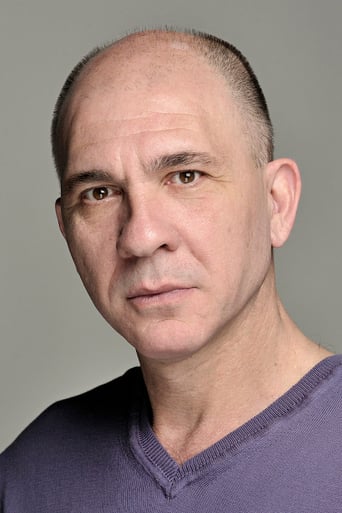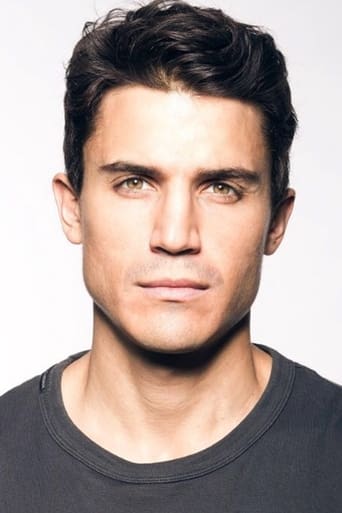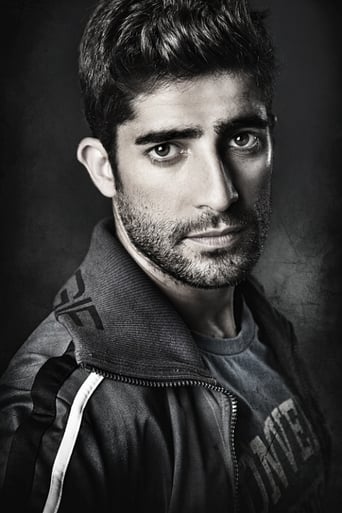EssenceStory
Well Deserved Praise
ScoobyMint
Disappointment for a huge fan!
ChicDragon
It's a mild crowd pleaser for people who are exhausted by blockbusters.
Bessie Smyth
Great story, amazing characters, superb action, enthralling cinematography. Yes, this is something I am glad I spent money on.
rasecz
A young boxer down on his luck -- injured hand, mother about to be evicted, a good friend in trouble -- is approached by an ex-pat, now from Argentina, con-man. This shady and smooth operator takes advantage of the young boxer and involves him in bank robbery.The story is more complicated than that however. Little by little secrets about and connecting the major characters are revealed. We come to see each character's behavior in a different light. The ending is poetic.Tango music and tango-y hip-hop are fine accompaniments. The actors are excellent especially the one playing Vidal, the cool bank robber.
gradyharp
THE GOOD BOY ( aka SEGUNDO ASALTO and ROUND TWO) is a superb little film from Spain, written by Imanol Uribe based on a story by director Daniel Cebrián. For some reason the film was marketed in the US as a gay themed movie, probably because of the poster/DVD jacket of star Álex González' finely trained torso. Viewers should be alerted that this is not a film with a gay theme but instead a film that focuses on the universal theme of coming of age, this particular time in the seedy sector of South Madrid. With a cast of fine actors well directed by Cebrián this is a superbly woven tale that makes no judgments, but instead encourages the viewer to participate in viewing the struggles of a young lad who wants to make a better life for himself and his single mother. Angel (Álex González) devotes his time and hopes for success as a boxer under the guidance of his father-figure trainer Paco "El Tigre" (Pepe Oliva), a man who is idealistic and wants Angel to win the big fights when he is physically ready, not when the fight can be 'bought'. Money struggles at home and emotional struggles set the stage for the entrance on Vidal (Darío Grandinetti), a mysterious ex-boxer who has returned to Spain from Argentina, has occult bonds with Angel's family, and introduces Angel to the underground world of crime. Angle's needs to provide for his mother and to attempt to rise in the world encourage him to participate in a bank robbery with Vidal. Once bitten by the bug of easy money Angel bonds with Vidal, brings in his best friend to join in the easy money , and marches toward what will become a tragedy. How Angel rationalizes his diversion from his passion for the boxing ring to the seductive world of Vidal's design leads to an ending of the film that is left open to the viewer's decision as to Angel's future. The final scene is one of great beauty and emotional power - boxing in the ring becomes a subtle metaphor. Boasting a strong cast of actors, this film succeeds on many levels: it is a solid story with an open ending, it is beautifully photographed by Gonzalo F. Berridi to heighten the mood of the film, and the accompanying musical score by Iván Miguélez maintains the flavor of the sparing. This is a very fine Spanish film that deserves a wide audience. In Spanish with English subtitles. Grady Harp
Iliyana
Daniel Cebrián's gritty drama "Segundo asalto" is another wonderful example of how European directors are more willing to explore the territory of painful, irresolvable emotions and are not afraid to present us with films that dare to leave us with questions and sometimes even in tears. Because real life hurts, and there is no shame in asking the stories we tell one another to mirror some of that pain. Behind the simplicity of the plot lies a very powerful and touching coming-of-age drama. Angel (Álex González) is a twenty-year-old loner and an aspiring boxer. He is being trained by Paco "the Tiger" for his shot at the big time. But Paco's idealistic advice is starting to sound hollow, since away from the ring, things are falling apart for Angel. The director skillfully rolls the camera through the streets of South Madrid and thus reveals the squalid chaos of life in the poorest districts that makes the poverty tangible and looks like exactly the kind of background anyone would want to escape from. So when Angel encounters the dangerously charismatic Vidal (Darío Grandinetti), a career criminal who aggressively tries to persuade him to take "the easy route", the young boxer is virtually torn in two directions - forced to choose between the familiar environment of the boxing ring, and the seemingly "easy" route to which Vidal beckons. As a result, Angel's sense of stability begins to crack and weaken under this external pressure, and he starts to lose his bearings. But ironically, by responding to Vidal's proposition, Angel can determine his core values and goals and the direction of his life, and thus gain the inner strength necessary to move forward. The authenticity of Angel's inner struggle is reinforced by a brilliant photography that gathers the sad light, with all the greys of the places he goes. It is also emphasised by the intelligent use of the sound track that highlights the atmosphere, for example the incredible Bajofondo Tango Club music. Another very interesting thing about the film is the open ending. It seems that the final desire of the director Daniel Cebrián was to get to see Angel and Vidal fight together - like a symbolical fight between old and new, between good and evil, between right and wrong, between the past and the future. This not only highlights the general idea of the movie but also shows what a remarkable cinematic effort Cebrián's "Segundo asalto" is and would hopefully leave the spectator satisfied by interpreting the ending in one's own way!




